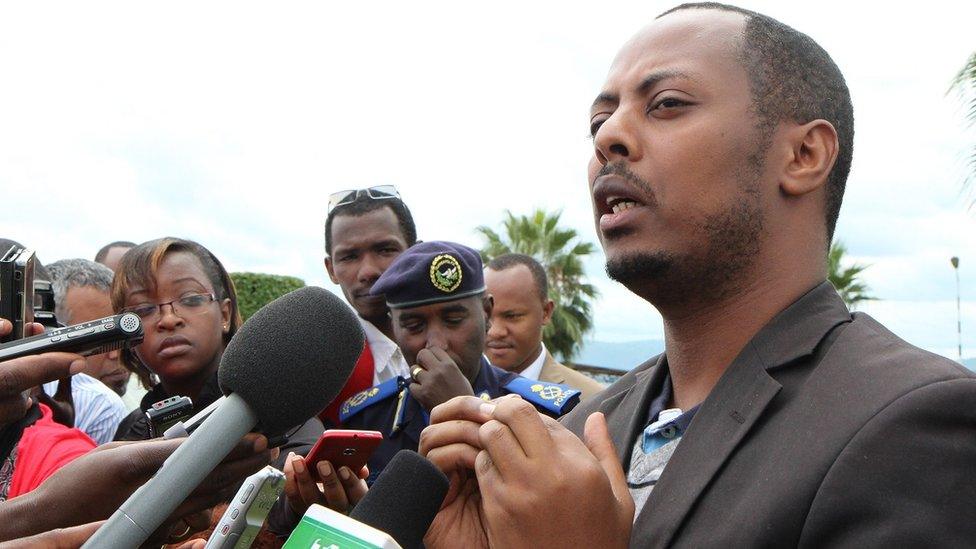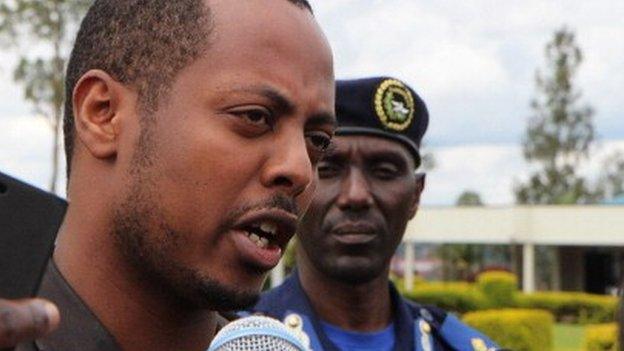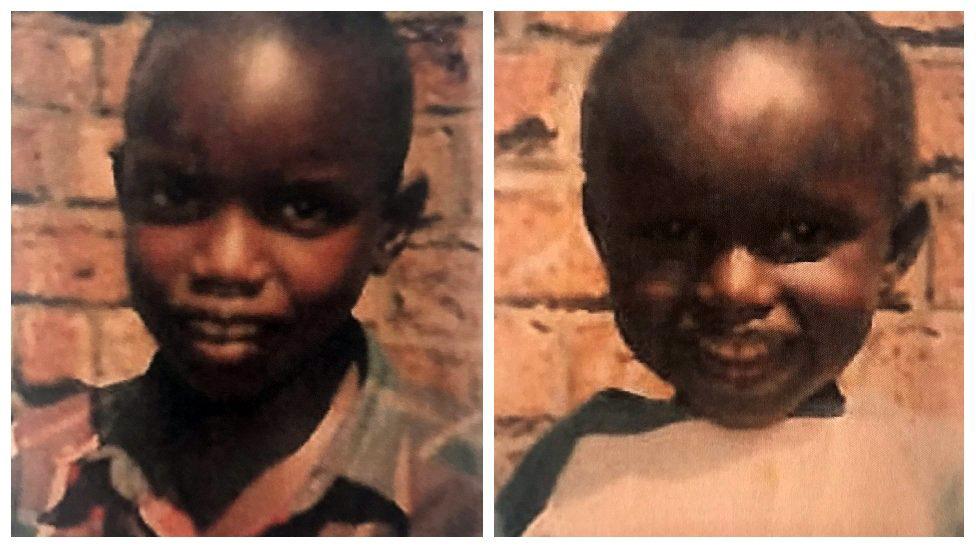Kizito Mihigo: Singer found dead in Rwandan police cell
- Published

Police say Kizito Mihigo was found dead in a cell in Kigali on Monday morning
Rwandan gospel music artist Kizito Mihigo has been found dead in a police cell, officers say.
It comes three days after he was arrested near the border with Burundi.
Police accused him of attempting to flee the country and join rebel groups fighting against Rwanda. He is banned from leaving Rwanda due to a previous conviction.
Mihigo was best known for the songs Inuma (pigeon) and Igisobanuri cy'urupfu (the meaning of death).
A statement shared on social media by police spokesman JB Kabeera said Mihigo's body was found during a routine check by officers at Remera police station on Monday morning. The spokesman gave no further details.
Mihigo had been charged with corruption and illegal border crossing, local media report, external.
The Rwanda Investigation Bureau accused the singer of attempting to bribe people who had seen him.
A resident in the south-western Nyaruguru district told BBC Great Lakes that on Thursday villagers had stopped the musician, who was carrying a heavy bag, and handed him over to police.
"I was there, I saw him. Villagers who stopped him said he was trying to cross to Burundi using illegal roads. From here to the border it's less than five minutes' walk," the resident, who declined to be named, said.
'Targeted because of his music'
Some of Mihigo's fans took to social media demanding answers from the government about his death.
Activists in the diaspora have dismissed the statement from the Rwandan police. They say Mihigo had no intention of joining rebels in Burundi but he in fact wanted to get to Belgium where he had lived before.
They also do not believe he killed himself in the police cell and think he was murdered.
In 2015, the singer was sentenced to 10 years in prison after being convicted of planning to kill President Paul Kagame and inciting hatred against the government.
He was pardoned by the president in 2018 on condition that he only leave the country with judicial permission.
But government critics think he was targeted because of his music.
In one song he suggested everyone killed during the 1994 genocide should be remembered whether they were ethnic Hutus or Tutsis. The authorities saw this as openly challenging the official narrative that it was a genocide of the Tutsis.
Mr Kagame is a Tutsi, who came to power as head of a rebel group which forced from power the Hutu extremist government behind the mass killings.
Mihigo was once close to Mr Kagame's governing Rwandan Patriotic Front (RPF). He is a survivor of the 1994 genocide and is well known for his reconciliation work and religious songs.
- Published27 February 2015

- Published23 September 2019
